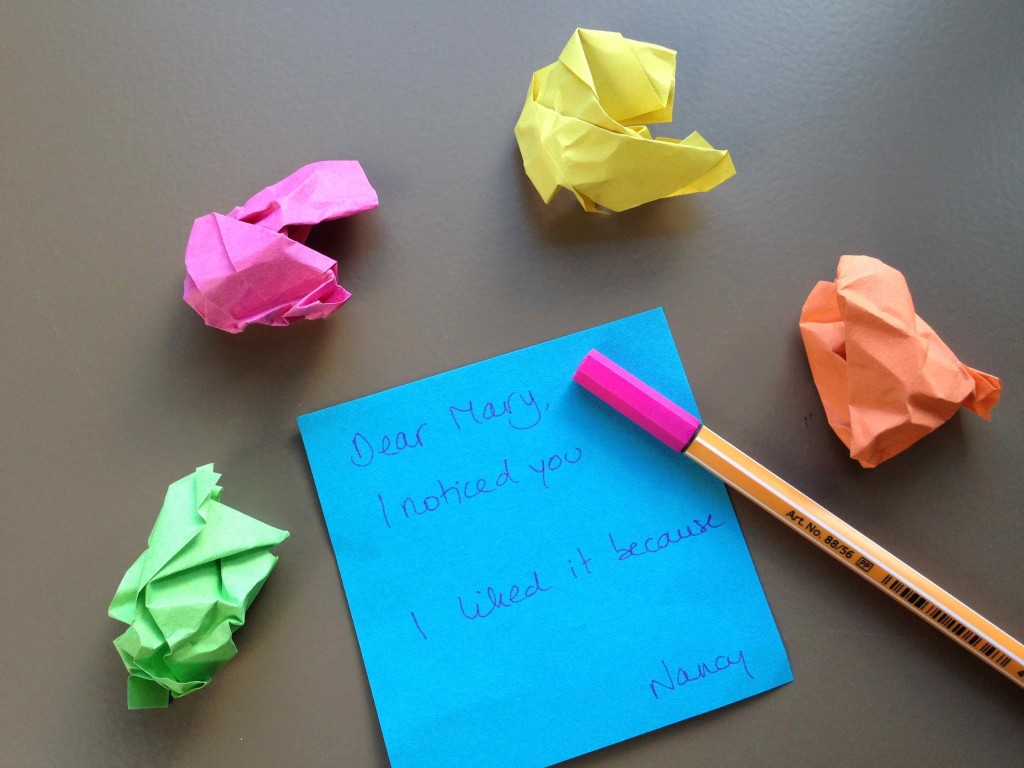What
“Paying attention in a particular way: on purpose, in the present moment, non-judgmental” – Jon Kabat-Zinn
On purpose: it’s more than just being aware. You can be aware of the fact that you’re eating but that doesn’t mean you’re eating mindfully. It is about having the purpose of staying with the experience. And this experience can be anything: breathing, eating, doing the dishes, an emotion, …
In the present moment: the mind tends to wander. We get lost in our thoughts and very often these thoughts are about the past or the future. In mindfulness we try to notice what’s going on in the present, right now. And it’s possible that you’ll notice you’re in the past…
Non-judgmental: it’s about accepting whatever arises and observing it mindfully. When you notice ‘anger’, notice there is anger instead of ‘pushing it away’ because it’s not the ‘appropriate’ feeling to have right now… If you observe pain, stay with the pain… If you notice certain thought patterns: look at them mindfully…
Origin/history
After experiencing a lot of positive effects from his Buddhist practice, Jon Kabat-Zinn came up with an 8-week-programmes in 1979: MBSR (=Mindfulness Based Stress Reduction). Originally it was created to help people suffering from pain, but it was quickly opened up to people suffering from stress in general.
Afterwards MBCT (=Mindfulness Based Cognitive Therapy) was developed, specializing in helping people suffering from depression.
Content:
In both programmes you meet once a week, for 2,5 – 3 hours and you are given mediations and exercises to enable you to access your own resources for responding more effectively to stress, pain and illness.
Formal practice vs. non-formal practice:
Formal practice: Meditations like the bodyscan, focus on the breathing…
Informal practice:
- When waking up: while still in bed, before getting up: notice your breathing
- Shower: feel the water on your skin, notice the temperature, smell the soap,…
- Meal: take your time, smell and ‘explore’ your food: taste, texture, …
- While standing in front of a red light: be aware of your bodily sensations, relax your shoulders
- A couple of times a day: take a ‘3-minute break’
- Monotasking..
Books:
- Wherever you go, there you are: mindfulness meditation in everyday life – Jon Kabat-Zinn (=introduction to the concept, short texts of 1 to 1,5 page(s))
- Full catastrophe living. How to cope with stress, pain and illness using mindfulness meditation – Jon Kabat-Zinn (=very complete and into depth)
Free recordings of formal meditations:
- http://marc.ucla.edu/cfm (English)
- http://www.cps-emotions.be/mindfulness/materiel-mindfulness.php (Français)
- http://www.itam.be/mindfulness.html (Nederlands)
- For the Italians: I haven’t tried anything out but you might find more info at http://www.mindfulnessitalia.it or http://www.centromindfulness.net
Articles on Mindfulness at work:
Financial times: here
If you want to find it all in one place: theory, practice, meditations – I’ve created this product, especially for you!
The Truth about Mindfulness – Find out more here!
If you liked the above, you can sign up for more Tips & Tricks here. Looking forward to hearing from you!


